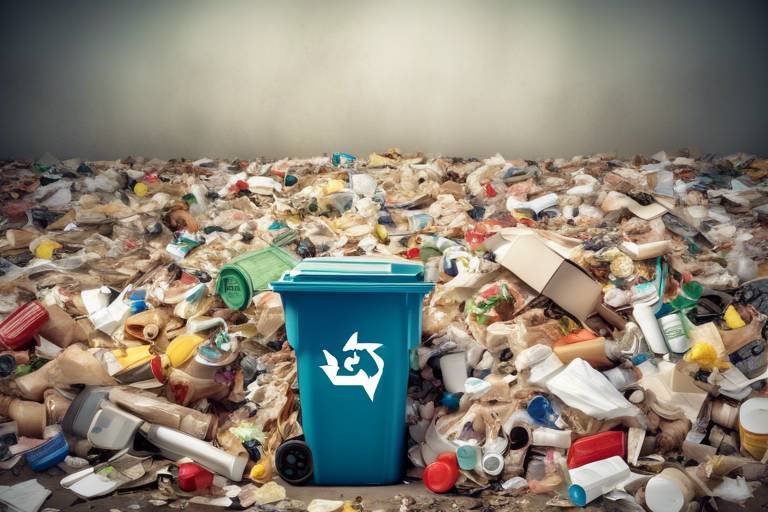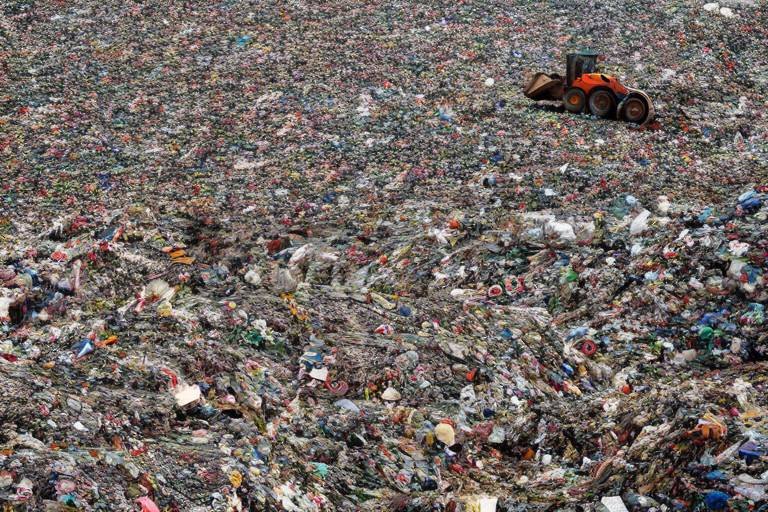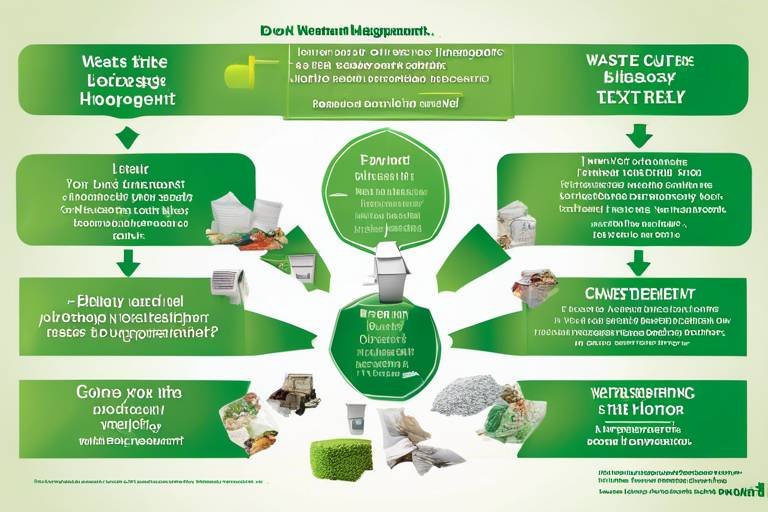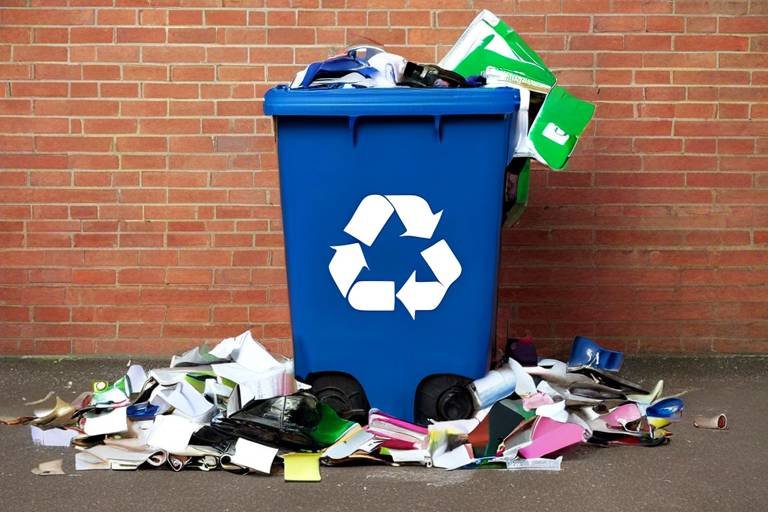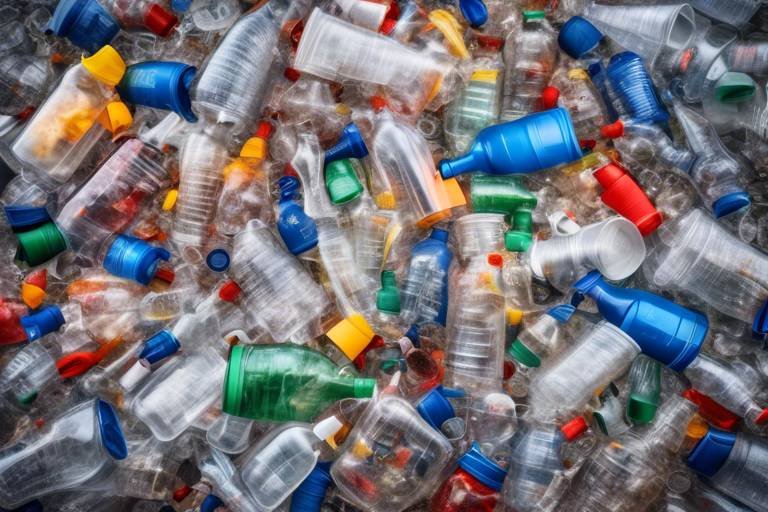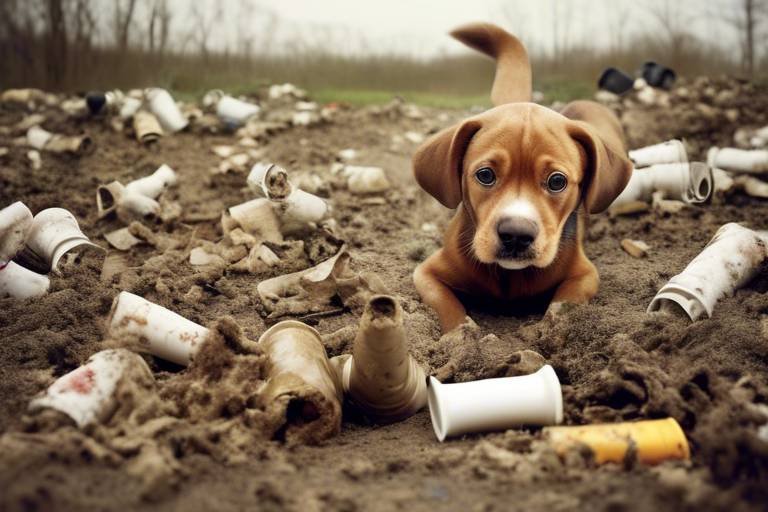Understanding the Health Risks of Improper Waste Management
Improper waste management is a pressing issue that affects not just the environment but also the health and well-being of communities. As we generate more waste than ever before, the way we handle it has become a matter of urgency. Think about it: every piece of trash we toss aside has the potential to create a ripple effect, impacting our air, water, and soil quality. This article dives deep into the health risks associated with improper waste management, highlighting the environmental, social, and economic impacts. But don’t worry; we’ll also explore strategies to mitigate these risks, paving the way for healthier communities.
When we talk about improper waste management, we’re essentially discussing pollution—pollution that seeps into our air, water, and soil. This pollution doesn’t just disappear; it has long-lasting effects on ecosystems. For instance, when waste is dumped in landfills without proper containment, it can leach harmful substances into the ground, affecting plants and wildlife. Moreover, the air we breathe can become tainted with toxic gases released from decomposing waste. Understanding these environmental consequences is crucial for recognizing the broader implications of waste mismanagement on public health. It’s like a domino effect; once one part of the ecosystem is affected, the rest follows suit.
Now, let’s get personal. What does improper waste management mean for our health? Exposure to hazardous waste can lead to a plethora of serious health issues. Imagine living next to a site where waste is improperly managed; your risk of developing respiratory problems, infections, and chronic diseases skyrockets. Communities that are often marginalized or economically disadvantaged are the ones that bear the brunt of these risks. It’s not just about the trash piling up; it’s about the lives at stake.
One of the most alarming consequences of poor waste management is the contamination of water sources. When waste is not disposed of properly, it can leach into nearby water supplies, creating a toxic cocktail that poses severe health risks. Waterborne diseases, such as cholera and dysentery, can spread rapidly in communities relying on contaminated water. Additionally, exposure to toxic substances can lead to long-term health issues, including neurological damage. It’s a harsh reality that many communities face, and it’s crucial for us to recognize the importance of proper waste disposal to safeguard our water.
Improper waste management can lead to an alarming increase in microbial contamination in water and soil. Pathogens thrive in conditions where waste is not managed correctly, and these pathogens can cause a range of illnesses. For instance, bacteria like E. coli and Salmonella can proliferate in contaminated water, posing serious health threats. The potential health impacts are staggering, especially for vulnerable populations such as children and the elderly. It’s like opening the door to a host of diseases that could have been prevented with better waste management practices.
Let’s not forget about the hazardous chemicals lurking in improperly managed waste. These chemicals can contaminate both air and water, leading to significant health risks. Long-term exposure to toxic substances can result in chronic health issues, including cancer and respiratory diseases. Vulnerable populations, such as those living near landfills or industrial sites, are often the most at risk. It’s a ticking time bomb, and the longer we ignore it, the more lives are at stake.
Improper waste disposal doesn’t just affect our water; it also releases harmful gases and pollutants into the air. Have you ever noticed a foul smell near a landfill? That’s not just unpleasant; it’s a sign of air quality deterioration. When waste decomposes, it can release methane and other toxic gases, leading to respiratory illnesses among nearby residents. Poor air quality can exacerbate conditions like asthma and lead to long-term health complications. It’s an invisible enemy that we must confront head-on.
The costs associated with poor waste management extend beyond health impacts; they significantly affect local economies. Communities burdened with waste-related health issues often face increased healthcare costs, which can strain family budgets and local resources. Healthcare systems become overwhelmed, and the financial burden shifts to taxpayers. It’s a vicious cycle that can be hard to break.
Increased health risks from improper waste management lead to higher healthcare costs. Families dealing with waste-related health problems often find themselves spending more on medical bills, which can lead to financial instability. It’s a heavy toll that can impact not just individual families but entire communities. The economic implications are staggering, and it’s essential to recognize that investing in proper waste management can save money in the long run.
Communities with poor waste management often experience economic decline. Health risks can deter investment and tourism, further straining local economies. When potential investors see a community struggling with waste issues, they are less likely to invest their money. It’s a lose-lose situation that can leave communities trapped in a cycle of poverty and decline. By prioritizing proper waste management, communities can create a healthier environment that attracts businesses and boosts the local economy.
- What are the main health risks associated with improper waste management? Exposure to hazardous waste can lead to respiratory problems, infections, and chronic diseases.
- How does waste management impact local economies? Poor waste management can lead to increased healthcare costs and deter investment and tourism.
- What can communities do to improve waste management? Implementing better waste segregation, recycling programs, and public awareness campaigns can significantly improve waste management.

The Environmental Impact
Improper waste management is not just an eyesore; it's a ticking time bomb for our environment. When waste is carelessly discarded, it leads to a cascade of negative effects that ripple through air, water, and soil. Imagine a beautiful river, once teeming with life, now choked with plastic and toxic substances. This pollution disrupts ecosystems, harming wildlife and degrading natural habitats. The consequences can be dire, affecting everything from local biodiversity to global climate patterns.
One of the most alarming aspects of improper waste management is its potential to contaminate our essential resources. For instance, when waste decomposes in landfills, it can release harmful leachate that seeps into the ground. This leachate often contains a cocktail of hazardous chemicals that can infiltrate our groundwater supplies. The result? Communities that rely on these water sources may unknowingly consume contaminated water, leading to serious health issues.
Furthermore, the air we breathe is also at risk. Landfills emit methane, a potent greenhouse gas that contributes to climate change. As the planet warms, we face a myriad of environmental challenges, from extreme weather to rising sea levels. Poor waste management practices are not just a local issue; they have global repercussions. It's crucial to understand that the health of our planet is intricately connected to how we handle our waste.
To illustrate the profound impact of waste management on the environment, consider the following table:
| Type of Waste | Environmental Impact |
|---|---|
| Plastic Waste | Pollutes oceans, harms marine life, and takes hundreds of years to decompose. |
| Food Waste | Generates methane in landfills, contributing to climate change. |
| Electronic Waste | Releases toxic metals into soil and water, posing health risks to communities. |
In addition to direct pollution, improper waste management can lead to significant habitat destruction. When landfills expand or waste is improperly dumped in natural areas, it can obliterate ecosystems that are home to countless species. This loss of biodiversity not only affects wildlife but also destabilizes the delicate balance of our environment, leading to further complications.
Ultimately, the environmental impact of improper waste management is a complex web of consequences that affects all living beings. It's a reminder that our actions have far-reaching effects, and we must take responsibility for how we manage our waste. By adopting better practices and raising awareness, we can work towards a cleaner, healthier planet for future generations.
- What are the main environmental impacts of improper waste management? Improper waste management can lead to pollution of air, water, and soil, harm wildlife, and contribute to climate change.
- How does waste management affect human health? Contaminated water and air from improper waste disposal can lead to serious health issues such as respiratory problems and waterborne diseases.
- What can individuals do to improve waste management? Individuals can reduce waste by practicing recycling, composting, and making conscious choices about consumption.

Human Health Risks
When we think about waste management, we often picture trash bins overflowing or landfills stretching as far as the eye can see. But what we don't often consider are the serious health risks that come with improper waste management. It's not just about aesthetics; it's about the very air we breathe, the water we drink, and the soil we cultivate. Communities located near improperly managed waste sites are particularly vulnerable, facing a range of health issues that can severely impact their quality of life.
Exposure to hazardous waste can lead to a plethora of health problems. Imagine living in an area where the air is thick with pollutants and the water is tainted with toxic substances. It’s a nightmare scenario that many people face daily. The health risks can manifest in numerous ways, including:
- Respiratory Issues: Poor air quality can cause or exacerbate conditions like asthma, bronchitis, and other chronic respiratory diseases.
- Infectious Diseases: Improper waste management can create breeding grounds for vectors like mosquitoes, increasing the risk of diseases such as malaria and dengue fever.
- Chronic Diseases: Long-term exposure to hazardous waste can lead to serious chronic conditions, including cancer and neurological disorders.
One of the most alarming aspects of improper waste management is the contamination of water sources. When waste is dumped into rivers, lakes, or even underground, it can leach harmful substances into the water supply. This not only affects drinking water but also disrupts local ecosystems. Communities relying on these water sources are at risk of developing severe health issues, including:
- Waterborne Diseases: Contaminated water can harbor pathogens that lead to diseases such as cholera and typhoid fever.
- Toxic Exposure: Chemicals from waste can seep into the water, posing risks such as heavy metal poisoning and endocrine disruption.
Improper waste management can lead to an increase in microbial contamination in both water and soil. The conditions created by decomposing waste are perfect for various pathogens to thrive. These pathogens can include bacteria, viruses, and parasites, which can have dire health implications. For instance, exposure to these microbes can lead to gastrointestinal infections, respiratory illnesses, and even skin infections. It's essential to recognize that these risks are not just theoretical; they are very real threats to public health.
Another significant concern is the chemical exposure that arises from hazardous waste. Chemicals such as heavy metals, solvents, and other toxic substances can leach into the environment, contaminating air and water supplies. The long-term health effects of exposure to these chemicals are alarming and can include:
- Neurological Damage: Prolonged exposure to certain heavy metals can lead to developmental issues and cognitive impairments, particularly in children.
- Respiratory Problems: Breathing in pollutants can lead to chronic respiratory illnesses and exacerbate existing conditions.
- Reproductive Issues: Some chemicals have been linked to reproductive health problems, including infertility and birth defects.
The health risks associated with improper waste management are not just limited to the immediate environment; they ripple through communities and affect everyone. From increased healthcare costs to diminished quality of life, the implications are far-reaching. It’s crucial for us to recognize these risks and take action to improve waste management practices for the health of our communities and the environment.
Q: What are the main health risks associated with improper waste management?
A: The main health risks include respiratory issues, infectious diseases, and chronic diseases due to exposure to hazardous waste.
Q: How does contaminated water affect health?
A: Contaminated water can lead to waterborne diseases and toxic exposure, posing severe health risks to communities that rely on these water sources.
Q: What can be done to mitigate these health risks?
A: Improving waste management practices, increasing public awareness, and enforcing regulations can help mitigate health risks associated with improper waste management.

Contaminated Water Sources
When waste is improperly disposed of, it doesn't just vanish; it seeps into our environment, particularly our water sources. Imagine a pristine lake or river, once teeming with life, now tainted by hazardous materials. This reality is not just a nightmare scenario; it's happening in communities worldwide. Contaminated water sources pose a significant threat to public health, leading to a variety of serious health risks that can affect anyone who relies on these water supplies.
One of the most alarming consequences of contaminated water is the rise of waterborne diseases. These illnesses, caused by pathogens that thrive in polluted water, can lead to severe health complications. Common waterborne diseases include:
- Cholera: A bacterial infection that can cause severe diarrhea and dehydration.
- Typhoid Fever: Caused by ingesting food or water contaminated with the bacteria Salmonella typhi.
- Giardiasis: An intestinal infection caused by the Giardia parasite, leading to gastrointestinal distress.
Moreover, the leaching of toxic substances from waste into water supplies can result in toxic exposure. Chemicals such as heavy metals, pesticides, and industrial solvents can contaminate drinking water, posing long-term health risks. These contaminants can accumulate in the body over time, leading to chronic conditions such as:
- Cancer: Certain chemicals are known carcinogens that can increase the risk of developing cancer.
- Neurological Disorders: Exposure to heavy metals like lead can affect brain development, especially in children.
- Reproductive Issues: Some toxins can disrupt hormonal balance, leading to fertility problems and developmental issues in offspring.
To illustrate the gravity of this issue, consider a recent study that showed communities near improperly managed landfills had significantly higher rates of gastrointestinal diseases. This correlation highlights how our waste management practices directly impact community health. The risk is not confined to immediate residents; it can extend to entire regions, affecting anyone who consumes contaminated water.
In conclusion, the implications of contaminated water sources are profound and far-reaching. They not only threaten individual health but also strain public health systems and local economies. Addressing these risks requires a concerted effort from governments, communities, and individuals to improve waste management practices and protect our vital water resources.

Microbial Risks
When we think about waste management, the last thing that often comes to mind is the that arise from improper disposal. However, this is a critical aspect of the public health conversation that cannot be overlooked. Imagine a world where waste is carelessly dumped, creating a breeding ground for bacteria and viruses. It’s not just an environmental issue; it’s a direct threat to our health. Improper waste management can lead to a significant increase in microbial contamination in both water and soil, which can have devastating effects on communities.
Pathogens thrive in environments where waste is not managed correctly. These microorganisms can include bacteria, viruses, and parasites that cause a variety of illnesses. For instance, Escherichia coli (E. coli) and Salmonella are well-known culprits that can contaminate food and water supplies, leading to severe gastrointestinal diseases. The risk is particularly high in areas with inadequate sanitation facilities, where waste can easily leach into drinking water sources. The presence of these pathogens not only affects individual health but can also lead to outbreaks that strain healthcare systems.
Moreover, the impact of microbial contamination extends beyond immediate health risks. It can also disrupt local ecosystems, leading to long-term environmental degradation. For example, when pathogens enter water bodies, they can affect aquatic life and disrupt the food chain. This creates a cycle of health risks that can be challenging to break. The following table summarizes some common pathogens associated with improper waste management, their sources, and potential health impacts:
| Pathogen | Source | Health Impact |
|---|---|---|
| Escherichia coli | Contaminated water, food | Severe gastrointestinal illness |
| Salmonella | Improperly handled food, waste | Fever, diarrhea, abdominal cramps |
| Giardia | Contaminated water | Diarrhea, fatigue, dehydration |
| Hepatitis A | Contaminated food, water | Liver infection, jaundice |
It’s essential to understand that the risks are not just confined to those living near waste sites. Microbial pathogens can spread through the air, water, and even through contact with contaminated surfaces. This means that anyone, regardless of their location, can be at risk if proper waste management practices are not followed. So, what can we do to combat these microbial threats? The answer lies in education and community action. Promoting awareness about the importance of proper waste disposal and sanitation can empower communities to take charge of their health.
In conclusion, the microbial risks associated with improper waste management are a pressing concern that requires immediate attention. By understanding the potential health impacts and advocating for better waste management practices, we can protect our communities and ensure a healthier future for everyone.
- What are the main health risks of improper waste management?
Improper waste management can lead to various health risks, including respiratory illnesses, infections, and exposure to hazardous materials. - How does waste management affect water quality?
When waste is not disposed of correctly, it can leach into water supplies, leading to contamination that poses severe health risks, including waterborne diseases. - What steps can communities take to improve waste management?
Communities can promote awareness about proper waste disposal, implement recycling programs, and advocate for better sanitation facilities. - What role do pathogens play in waste management issues?
Pathogens can thrive in improperly managed waste, leading to increased health risks and potential outbreaks of disease.

Chemical Exposure
When we think about waste, we often picture overflowing landfills or littered streets, but the hidden dangers of are just as alarming. Improper waste management can lead to the release of hazardous chemicals into our environment, affecting both our health and the ecosystem. Imagine walking through a park and unknowingly inhaling toxic fumes or sipping water that has been contaminated with industrial waste. It’s a reality for many communities, and the consequences can be devastating.
Chemicals from improperly disposed waste can seep into the air we breathe, the water we drink, and the soil we cultivate. The most common culprits include heavy metals, solvents, and persistent organic pollutants (POPs). These substances can have a range of harmful effects on human health, from acute reactions like headaches and dizziness to chronic conditions such as cancer and neurological disorders. Vulnerable populations, including children and the elderly, are particularly at risk. They may experience heightened sensitivity to these toxins, leading to more severe health outcomes.
For instance, exposure to heavy metals like lead and mercury can cause significant developmental issues in children, affecting their cognitive abilities and physical growth. Similarly, solvents found in household and industrial waste can lead to respiratory issues and skin irritations. The long-term exposure to these chemicals can be likened to a slow poison, gradually accumulating in the body and leading to severe health complications over time.
Moreover, the impact of chemical exposure extends beyond individual health. It can strain public health systems, increase healthcare costs, and diminish the quality of life for entire communities. In fact, a study conducted by the World Health Organization (WHO) estimates that environmental factors, including chemical exposure from improper waste management, contribute to over 12 million deaths annually worldwide. The financial burden on healthcare systems can be staggering, as communities grapple with the fallout from these preventable health issues.
To illustrate the gravity of this situation, consider the following table that outlines common hazardous chemicals found in waste and their associated health risks:
| Chemical | Source | Health Risks |
|---|---|---|
| Lead | Batteries, Paint | Neurological damage, Developmental delays |
| Mercury | Thermometers, Light bulbs | Kidney damage, Neurological issues |
| Asbestos | Insulation, Roofing materials | Lung cancer, Mesothelioma |
| Benzene | Industrial waste, Cigarette smoke | Leukemia, Immune system damage |
In conclusion, the risks associated with chemical exposure from improper waste management are profound and far-reaching. It’s crucial for communities to advocate for better waste management practices, including proper disposal methods and recycling initiatives, to mitigate these health risks. By raising awareness and taking action, we can protect not only our health but also the health of future generations.
- What are the signs of chemical exposure? Symptoms can include headaches, dizziness, respiratory issues, and skin irritations.
- How can communities reduce chemical exposure? Implementing proper waste disposal practices, increasing recycling, and educating the public about hazardous waste are effective strategies.
- What should I do if I suspect chemical exposure? Seek medical attention immediately and report the exposure to local health authorities.

Air Quality Issues
Improper waste disposal isn't just an eyesore; it can have a profound impact on the quality of the air we breathe. When waste is dumped inappropriately, it can release a cocktail of harmful gases and pollutants into the atmosphere. This is not merely a concern for environmentalists; it affects everyone, especially those living near waste sites. Imagine waking up every day with the smell of garbage wafting through your window or, worse yet, knowing that the air around you is laden with toxins. This is a reality for many communities around the globe.
One of the primary culprits in air quality deterioration is the burning of waste. When materials such as plastics, rubber, and other non-biodegradable substances are incinerated, they release toxic fumes that can lead to severe health issues. These fumes often contain particulate matter, which can penetrate deep into the lungs and even enter the bloodstream. According to the World Health Organization (WHO), air pollution is responsible for millions of premature deaths each year, and improper waste management significantly contributes to this alarming statistic.
Furthermore, the decomposition of organic waste in landfills produces methane gas, a potent greenhouse gas that contributes to climate change. This not only affects air quality but also has larger implications for global warming. The connection between waste management and air quality is a vicious cycle; poor waste management leads to air pollution, which in turn exacerbates health issues, further straining community resources.
Let’s break down some of the specific air quality issues associated with improper waste management:
- Respiratory Illnesses: Exposure to polluted air can lead to chronic respiratory diseases such as asthma, bronchitis, and even lung cancer.
- Cardiovascular Problems: Poor air quality has been linked to heart disease and strokes, making it a silent killer.
- Increased Allergies: Pollutants can irritate the respiratory system, leading to heightened allergy symptoms for many individuals.
To truly grasp the impact of air quality issues stemming from improper waste management, consider this: a community that fails to manage its waste properly is not just compromising its environment; it's also jeopardizing the health and well-being of its residents. The economic implications are significant as well, as increased health issues can lead to higher healthcare costs and reduced productivity. It’s a cycle that keeps repeating unless action is taken.
In conclusion, addressing air quality issues linked to waste management is not just an environmental concern; it’s a public health imperative. By implementing better waste management practices, we can significantly improve air quality, thereby enhancing the overall health of our communities. It’s time to take responsibility for our waste and, in turn, for our health.
- What are the main pollutants from improper waste management? Common pollutants include methane gas, particulate matter, and various toxic fumes released during waste incineration.
- How does poor air quality affect human health? Poor air quality can lead to a range of health issues, including respiratory diseases, cardiovascular problems, and increased allergies.
- What can communities do to improve waste management? Communities can implement recycling programs, promote composting, and establish stricter regulations on waste disposal.

Economic Consequences
When we think about waste management, our minds often drift toward the environmental impacts or the health risks involved. However, the economic consequences of improper waste management deserve just as much attention. The reality is, the costs associated with poor waste disposal extend far beyond the immediate effects on health and the environment; they ripple through local economies, affecting everything from healthcare systems to local businesses.
Imagine living in a community where waste is poorly managed. It’s not just about the unsightly piles of trash; it’s about the hidden costs that accumulate over time. Local governments face increased expenses in managing waste, cleaning up contaminated sites, and treating health issues that arise from exposure to hazardous materials. These costs can strain budgets, leading to cuts in essential services like education and public safety. In fact, a study found that communities with inadequate waste management systems spend up to 30% more on healthcare costs related to waste-related illnesses.
Moreover, the economic burden doesn't stop at healthcare. Local businesses can suffer significantly in areas plagued by waste mismanagement. Customers are less likely to frequent a neighborhood that is littered with garbage or has a reputation for health hazards. This decline in foot traffic can lead to reduced sales for local shops and restaurants, creating a vicious cycle of economic downturn. In the long run, investors may shy away from these areas, fearing that the economic climate is unstable due to health risks and poor infrastructure.
To illustrate the economic impact of improper waste management, consider the following table:
| Economic Factor | Impact of Improper Waste Management |
|---|---|
| Healthcare Costs | Increased spending on treating waste-related illnesses |
| Local Business Revenue | Decreased sales due to reduced customer traffic |
| Property Values | Lower property values in areas with poor waste management |
| Investment | Decreased investment opportunities in affected communities |
As we can see, the economic consequences of improper waste management are extensive and multifaceted. It’s not just about the trash on the streets; it’s about the long-term viability of communities and their economies. By investing in better waste management practices, communities can not only improve public health but also create a more stable economic environment.
In conclusion, the economic ramifications of inadequate waste management are profound. They affect healthcare systems, local businesses, and overall community well-being. Addressing these issues is not just a matter of environmental responsibility; it’s a crucial step toward fostering healthier, more prosperous communities.
- What are the main economic impacts of improper waste management? Improper waste management can lead to increased healthcare costs, decreased local business revenue, lower property values, and reduced investment opportunities.
- How does waste management affect public health? Poor waste management can lead to health issues such as respiratory problems, infections, and chronic diseases, which in turn increase healthcare costs for communities.
- What can communities do to improve waste management? Communities can implement better waste segregation practices, invest in recycling programs, and educate residents about proper waste disposal methods.

Healthcare Costs
When we talk about the ramifications of improper waste management, the conversation often veers towards the environment or social issues. However, one of the most pressing concerns is the financial burden it places on healthcare systems and families. Imagine living in a community where waste is strewn about carelessly; not only are the aesthetics damaged, but the health of the residents is at risk. This leads to an increase in illnesses, which in turn drives up healthcare costs significantly.
In fact, studies have shown that communities plagued by poor waste management often see a spike in healthcare expenditures. Hospitals and clinics in these areas are inundated with patients suffering from ailments directly linked to waste issues, such as respiratory diseases, infections, and even chronic conditions like asthma. The financial strain on families can be overwhelming, leading to a cycle of debt and poverty as they struggle to cover medical bills. To illustrate this, consider the following table:
| Health Issue | Average Treatment Cost | Potential Annual Impact on Community |
|---|---|---|
| Respiratory Diseases | $2,500 | $250,000 |
| Infections | $1,500 | $150,000 |
| Chronic Diseases | $5,000 | $500,000 |
This table highlights just a few of the health issues exacerbated by improper waste management and the associated costs. The total annual impact on a community can easily reach into the millions when you factor in the number of people affected. Furthermore, these costs often fall disproportionately on low-income families who may lack adequate insurance or financial resources to cope with unexpected medical expenses.
The economic implications extend beyond just immediate healthcare costs. As medical expenses rise, local governments are forced to allocate more resources to public health initiatives, diverting funds from other critical areas like education and infrastructure. This creates a vicious cycle, where poor waste management not only affects health but also stifles economic growth and development.
In summary, the healthcare costs associated with improper waste management are not just numbers on a spreadsheet; they represent real lives affected by preventable health issues. Tackling these challenges requires a community effort focused on improving waste management practices, which can lead to healthier populations and ultimately lower healthcare costs.
- What are the main health risks associated with improper waste management? Improper waste management can lead to respiratory issues, infections, and chronic diseases due to exposure to hazardous materials.
- How does waste management impact local economies? Poor waste management can deter investment and tourism, leading to economic decline and increased healthcare costs.
- What can communities do to improve waste management? Communities can implement recycling programs, educate residents about proper disposal methods, and advocate for better waste management policies.

Impact on Local Businesses
The repercussions of improper waste management extend far beyond health concerns; they ripple through the very fabric of local economies, adversely affecting businesses in myriad ways. Imagine a bustling marketplace, vibrant with life and commerce, suddenly stifled by the stench of unmanaged waste. This scenario isn't just hypothetical; it's a reality for many communities grappling with the fallout of poor waste practices. Local businesses often find themselves at the mercy of these environmental issues, which can deter customers and investors alike.
When waste is improperly disposed of, it can lead to a noticeable decline in air and water quality, making the area less appealing to both residents and visitors. For instance, tourists are less likely to flock to a town known for its litter-strewn streets and polluted parks. This decline in foot traffic can lead to decreased sales for local shops and restaurants, creating a vicious cycle of economic downturn. As businesses struggle to maintain profitability, they may be forced to cut jobs or even close their doors, further exacerbating local unemployment rates.
Moreover, the financial burden associated with waste management often falls on the shoulders of local governments. When municipalities are compelled to allocate substantial funds to clean up waste-related issues, they may have less to invest in community development projects or infrastructure improvements. This can create a perception that the area is neglected, further driving away potential investors and businesses looking to establish a presence in a thriving community.
To illustrate the impact of improper waste management on local businesses, consider the following table:
| Impact | Examples | Long-term Consequences |
|---|---|---|
| Decline in Customer Foot Traffic | Fewer tourists, locals avoiding the area | Reduced sales, potential business closures |
| Increased Cleanup Costs | Higher taxes, less funding for local projects | Stalled community development, declining property values |
| Negative Public Perception | Bad reviews, media coverage of waste issues | Loss of business reputation, decreased investment opportunities |
In conclusion, the impact of improper waste management on local businesses is profound and multifaceted. It creates a domino effect that not only harms individual enterprises but also threatens the economic vitality of entire communities. Addressing these waste management issues is not just an environmental necessity; it’s an economic imperative that can pave the way for healthier, more prosperous neighborhoods.
- What are the main health risks associated with improper waste management?
Improper waste management can lead to respiratory problems, infections, and chronic diseases due to exposure to hazardous materials. - How does waste management affect local businesses?
Poor waste management can deter customers, increase cleanup costs, and negatively affect the public perception of a business, leading to decreased sales and potential closures. - What strategies can communities implement to improve waste management?
Communities can adopt recycling programs, conduct public awareness campaigns, and invest in proper waste disposal infrastructure to mitigate health risks. - How can individuals contribute to better waste management?
Individuals can practice responsible waste disposal, participate in community clean-up events, and educate others about the importance of proper waste management.
Frequently Asked Questions
- What are the health risks associated with improper waste management?
Improper waste management can lead to a range of health risks, including respiratory problems, infections, and chronic diseases. Communities near poorly managed waste sites are particularly vulnerable to these health issues.
- How does improper waste disposal affect water quality?
When waste is not disposed of correctly, it can leach harmful substances into water supplies, leading to contamination. This can result in serious health risks, such as waterborne diseases and toxic exposure.
- What types of pathogens are associated with microbial risks from waste?
Improper waste management can foster conditions that allow various pathogens, like bacteria and viruses, to thrive. These pathogens can contaminate water and soil, posing significant health risks to humans.
- What are the long-term effects of chemical exposure from waste?
Hazardous chemicals from improperly managed waste can contaminate air and water, leading to long-term health effects such as chronic respiratory issues and other serious illnesses, particularly in vulnerable populations.
- How does waste management impact air quality?
Poor waste disposal practices can release harmful gases and pollutants into the air, which can deteriorate air quality and contribute to respiratory illnesses among the local population.
- What economic consequences arise from improper waste management?
The costs associated with poor waste management extend beyond health impacts. They can burden local economies, increase healthcare costs, and deter investment and tourism, leading to economic decline.
- How do healthcare costs increase due to waste-related health issues?
Communities facing health risks from improper waste management often experience higher healthcare costs as they deal with the consequences of illnesses related to toxic exposure and environmental hazards.
- What can communities do to mitigate the risks associated with waste management?
Communities can implement better waste management practices, such as recycling, composting, and proper waste disposal methods, to minimize health risks and protect both the environment and public health.

